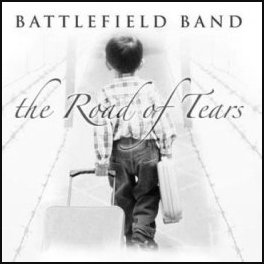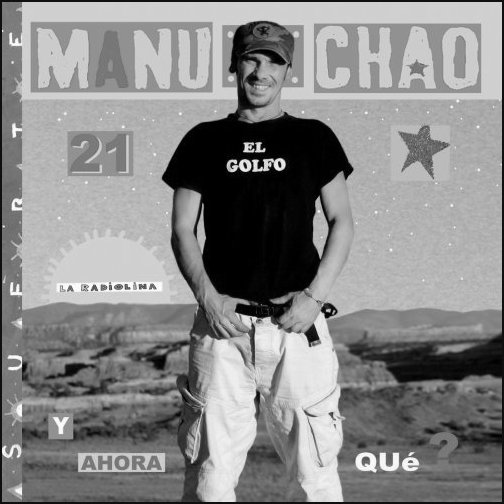Allan Armstrong reviews two albums, which address the world of migrant workers – dispossession and discrimination, longing and hope, oppression and resistance.

The Road of Tears
Battlefield Band, £9.50
Battlefield Band released their 26th album, The Road of Tears, last year. The theme is emigration and immigration. The album makes the link between the experience of the dispossessed from Scotland and Ireland, in the face of clearance and famine, and the plight of the world’s migrant workers today. The band’s line-up highlights Scotland’s multi-ethnic character, with the Scots, Alan Reid and Alistair White, the Irish, Sean O’Donnell and Jewish American, Mike Katz (Highland pipe player!)
The title track, written and sung by Alan Reid, sets the scene by focusing on the Highland Clearances, the Irish Famine and the Trail of Tears. This refers to the Cherokees’ march to Oklahoma, in 1838. They were forcibly, removed by US President Jackson, to the Indian Territories (Oklahoma). Four thousand, mainly women and children, died on the trail. The survivors sent money to the Irish Famine Relief Fund in 1847.
The album includes fine versions of two of Burns’ poems, sung by Alan Reid, The Slaves Lament and To A Mouse. Woody Guthrie’s Plane Wreck At Los Gatos is sung by Sean O’Donnell. Many will already know this song as Deportees from Christy Moore’s Spirit of Freedom album. Battlefield’s sleeve notes link the death of 28 illegal Mexican migrant workers in 1948 with the fate of the 18 cockle pickers who died in Morecambe Bay in 2004.
The first instrumental set includes the piece dedicated to Mr. Galloway Goes To Washington. This celebrates George Galloway’s triumph in the face of the US Senate sub-committee. There are another four instrumental sets which also show off Battlefield’s musical skills. The album finishes with The Green and The Blue, written and sung by Alan Reid, calling upon Irish migrants from Antrim and Fermanagh, arriving in Scotland to:-
Look onwards to Glasgow and all your tomorrows The future lies there, and its still waiting for you As the green crosses over to meet with the blue.
Its great to see that that some of Scotland’s leading musicians can fully live up to that Scottish internationalist spirit, so well demonstrated in Hamish Henderson’s Freedom Come All Ye.
La Radiolina
Manu Chau
Nacional Records

Manu Chao first came to international fame for his Clandestino album, which sold three million copies worldwide, putting it just behind Bueno Vista Social Club as the best-selling world-music album of all-time. Not a lot of people know that – well not in the English-speaking world that is. Hopefully, things will change here with the recent release of Manu’s third album, La Radiolina.
Manu grew up in Paris, because his Galician father and Basque mother had to escape from Franco’s fascist Spain. Manu’s current home base is the Catalan capital of Barcelona, but he spends a lot of time in Buenos Aires, another city with a strong oppositional culture. He also visits Bamako in Mali, a major centre of world music.
La Radiolina includes songs in French, Spanish, Portuguese, Italian and English. It has a much rockier feel compared to his first album. This is because he uses Radio Bemba Sound System for backing. ‘Radio Bemba’ is the word-of-mouth system used by the Cuban revolutionaries, led by Fidel Castro and Che Guevara, to communicate with each other in the forest of the Sierra Maestra.
When Manu recently toured the USA, he played to a 90,000 strong audience, at the Coachela Festival in California. They were waiting to hear their idols, Rage Against the Machine, but he won over the mainly non-Latin audience. His band performed with a banner draped across the stage – Immigrants are not Criminals. This followed the major protests organised mainly by Latin American immigrants, throughout the USA, on May Day, 2006.
The lyrics from one of Manu’s English-worded songs give an indication of Manu’s politics and highlight the reason why so many people are forced to emigrate worldwide. After verses about the appalling conditions in war-torn Zaire and Liberia, Manu finishes Rainin in Paradize with the following verse:-
In Bagdad
Its no democracy
That’s just because
It’s a US country!
In Fallouja
Too much calamity
This world go crazy
Its no fatality
Let’s get Manu’s new album up there to equal the sales of the justly famed Bueno Vista Social Club.
